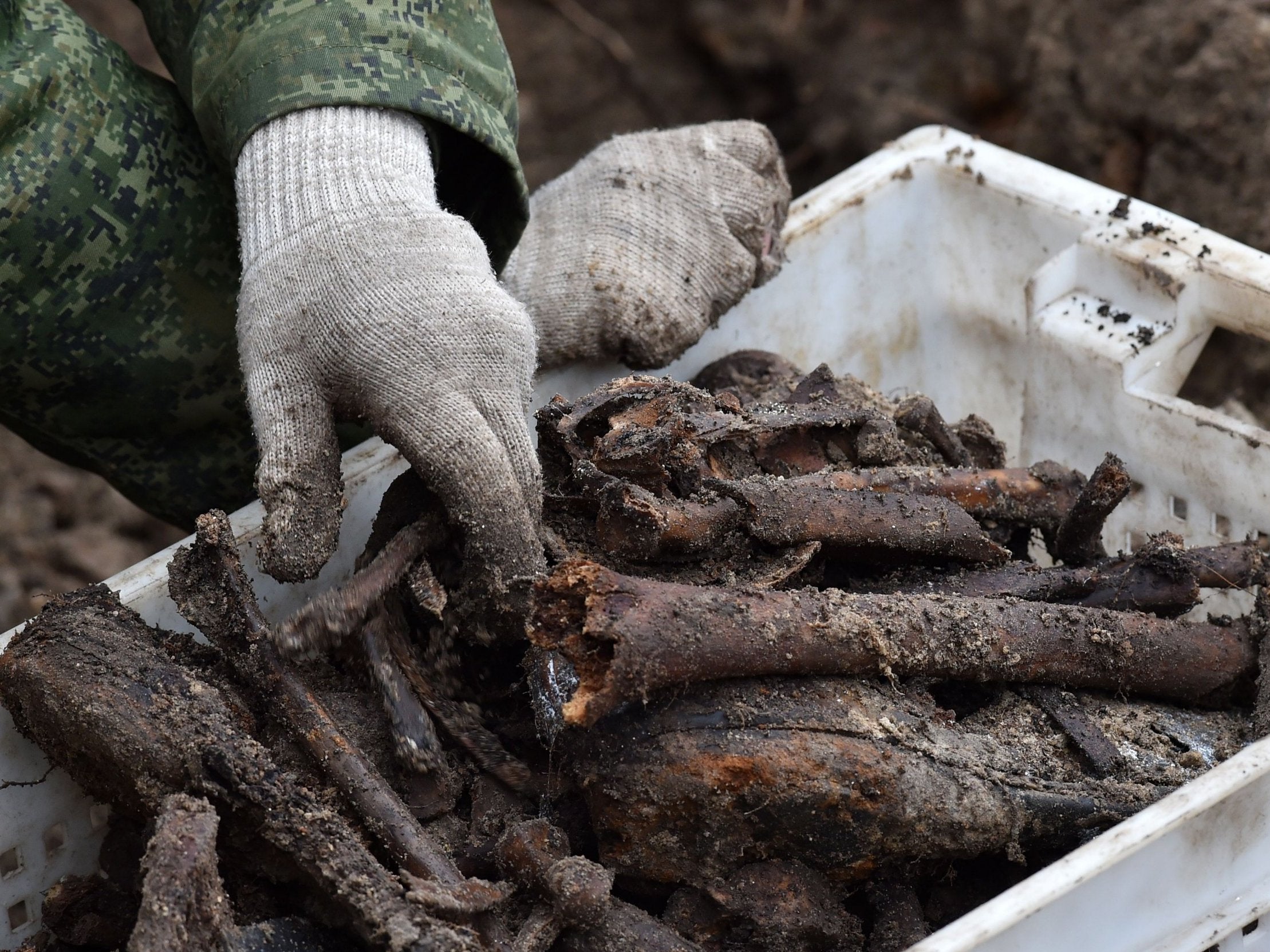Remains of hundreds of Jews unearthed in Nazi-era mass grave in Belarus
Victim's skulls bore bullet holes, suggesting they had been executed by 'a shot to the back of the head'

The remains of hundreds of Jews shot during the Second World War have been discovered in a mass grave in Belarus.
The grave was uncovered by chance last month on a construction site in a residential area in the city of Brest, near the Polish border.
Soldiers have been unearthing the bones, which were found at the site of a ghetto where the Jews lived under Nazi occupation.
On Tuesday, soldiers with white masks sifted through the site with spades, trowels and their gloved hands to collect the bones.
They also found items such as leather shoes that had not rotted.
Dmitry Kaminsky, a soldier leading the unit, said they had exhumed 730 bodies so far, but could not be sure how many more would be found.
"It's possible they go further under the road. We have to cut open the tarmac road. Then we'll know," Mr Kaminsky said.
Some of the skulls bore bullet holes, he said, suggesting the victims had been executed by a shot to the back of the head.
Belarus, a former Soviet republic, was occupied by Nazi Germany during the Second World War and tens of thousands of its Jews were murdered by the Nazis.
The site of the mass grave served from December 1941 to October 1942 as part of a ghetto, areas created by the Nazis to segregate Jews and sometimes other minorities from other city dwellers.
The remains were discovered when builders began to lay the foundations for an apartment block.

Local authorities want to bury the bodies in a ceremony at a cemetery in the north of the city, which was part of Poland before the war.
"We want to be sure that there are no more mass graves here," said Alla Kondak, a local culture official.
Additional reporting by Reuters
Join our commenting forum
Join thought-provoking conversations, follow other Independent readers and see their replies
Comments
Bookmark popover
Removed from bookmarks